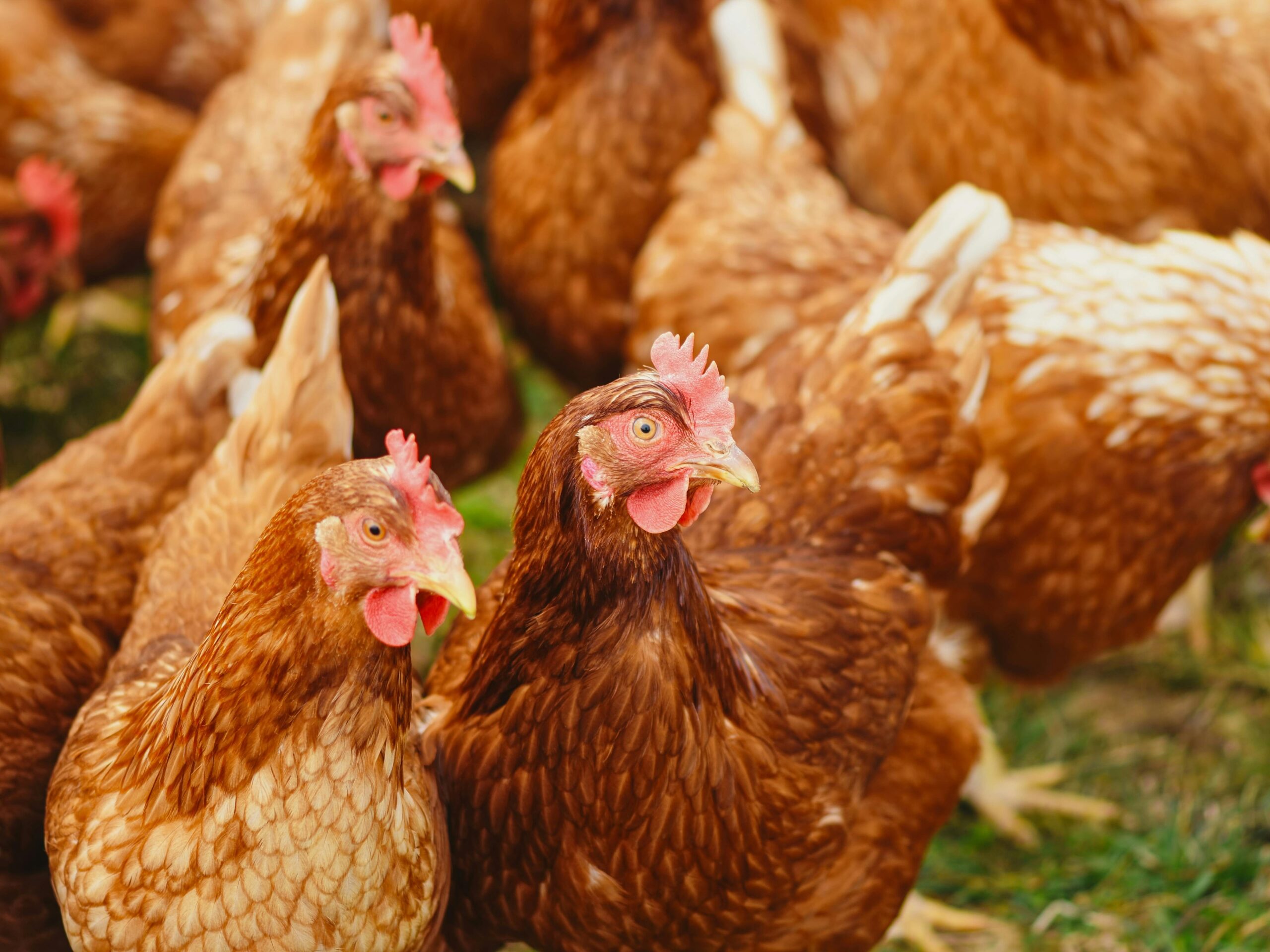
Egg-laying hens
A guide to raising laying hens for egg production.
Updated 15 April 2024
Becoming a producer
Now that you have set up your chicken coop, you must organise essential registrations, insurances, and other administration before you can run an egg-producing business.
Land registration
You must register your agricultural land and business with the Rural Payments and Inspections Division (RPID) even if you do not withdraw subsidies.
You must register within 30 days from the date you first keep chickens. It is free and requires basic information about your smallholding/croft/farm.
Register your land with RPID online or complete this form.
You will get two numbers:
- Business Reference Number (BRN) for your farm/croft business
- County Parish Holding (CPH) number for your land. You need this number to register your flock and report any movements of animals.
If you need help, contact your local RPID office.
Flock registration
Anyone who keeps birds, even a single bird, must register on the Scottish Kept Bird Register (SKBR). This is a legal requirement. Once registered, you need to make sure your details are kept up to date.
Feed business registration
If you sell eggs, you must register as a feed business with Food Standards Scotland (FSS) to store and give your hens animal feed. You can register as a feed business online, and it is free.
Registering to sell eggs
To sell eggs from your hens, you may need to register as an egg producer and an egg packing centre. Legally, the producing of eggs and packing of eggs are considered separate activities, and they have different registrations — both are free of charge.
If you need to register, you must do this and have your site inspected before bringing in any hens.
You do not need to register at all if:
- The eggs are for you and your family or neighbours
- You sell eggs directly to consumers at the farm gate or locally door-to-door (’local’ is defined as your local authority, immediately neighbouring local authorities or ones not further than 30 miles from the border of your local authority).
- You have up to 50 hens and sell eggs at a local public market (e.g., a farmers’ market)
You need to register as an egg producer if:
- You send any eggs to registered egg packing centres (including your own)
- You have more than 50 hens and sell eggs at a local public market (e.g., a farmers’ market)
- You have more than 350 hens
You also need to register as an egg packing centre if:
- You pack and supply eggs to retailers, processors, restaurants or bakeries
If you are unsure if you need to register, contact your local authority’s environmental health team for advice. Find contact details for your local environmental health team.
Registering as an egg producer
To register as a commercial egg producer, application forms can be found on the Scottish Government Poultry Unit Avian Registration Hub.
You will receive a producer code which is used in marking the eggs for sale. If you get more hen houses or change your production system (e.g., from barn eggs to free range), you must fill in a new form.
Registering as an egg packing centre
To register as an egg packing centre, applications forms can be found on the Scottish Government Poultry Unit Avian Registration Hub.
You need details of all of your egg handling, required packaging and labelling equipment (see ’Egg-packing equipment’).
Getting approved as a food business
To run an egg packing centre you will also need approval as a food business, at least 28 days before you start trading. You can do via your local authority, but the Poultry Unit will automatically notify them when you submit your application.
To be approved, you need to follow food safety standards like developing a food safety management system based on Hazard Analysis and Critical Control Points Principles (HACCP). However, if you supply small quantities of eggs to local establishments like restaurants or farm shops, you are exempt from some of these regulations.
Read more in the Food Hygiene Regulations guide for small producers, or contact your local environmental health team for advice.
Setting up your business
If you earn more than £1,000 per year from farming/crofting, including selling eggs, you need to register as a sole trader, or set up a business partnership or a limited company. You will also need to pay income tax on your profits and keep records. You might also want to draft a business plan to keep track of your accounts – this guide by the Landworkers’ Alliance is a good starting point.
Rural Payments and Services has an explainer of different types of farm businesses.
Insurances
Getting a general liability insurance will cover other people getting injured because of your operations or produce, and you may consider income protection/personal accident insurances. Some insurers also offer specialist packages for smallholders.
You may also look into the availability of insurance for avian influenza outbreaks which, depending on the size of your flock, can incur significant expenses for culling hens and disinfection (see ’Control of notifiable avian diseases’).
Some membership bodies, like the British Free Range Egg Producers Association (BFREPA), also offer exclusive insurance cover.
Membership & certifications
It can be helpful to register with a specific membership body for egg producers, such as the British Free Range Egg Producers Association (BFREPA), to keep up to date with the latest news and trainings.
You can also apply for certifications, which come with additional requirements for keeping egg-laying hens and allow you to market their eggs as meeting specific standards.
Some of the most prominent egg certifications in the UK include:
- British Lion, food safety
- RSPCA Assured, animal welfare
- Organic by approved UK organisations, system of production